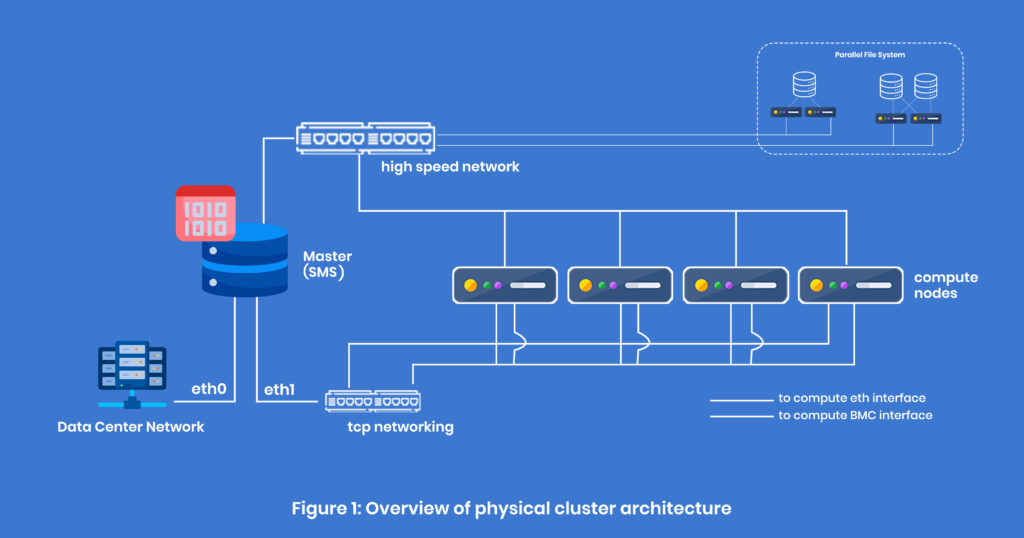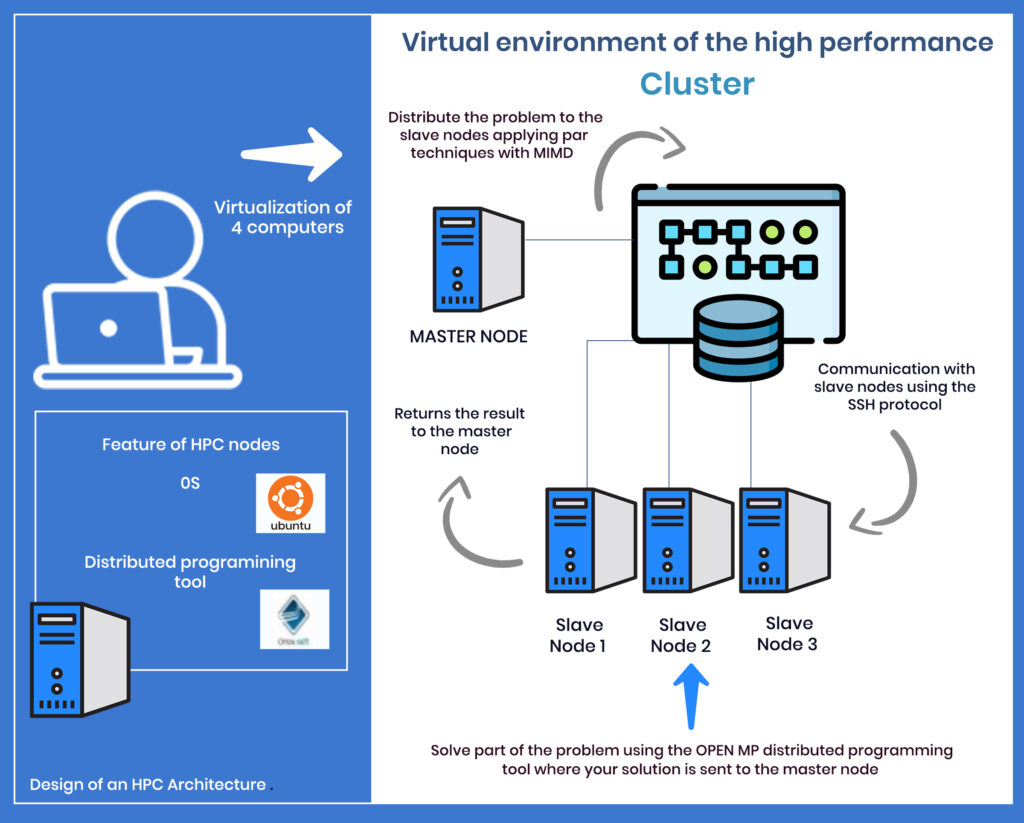openHPC: High Processing Computation Cluster
An openHPC (High Processing Computation)
cluster is a group of interconnected computers or servers that work together as a single system to provide high-performance computing capabilities.
It combines the computational power of multiple nodes, enabling parallel processing and efficient utilization of resources.

HPC Cluster Issues
As HPC began developing, there was considerable duplication and redundancy among the HPC sites compiling HPC software became apparent, and sometimes dependencies between the different software components made installations cumbersome.
The OpenHPC project was created in response to these issues. OpenHPC is a community-based effort to solve common tasks in HPC environments by providing documentation and building blocks that can be combined by HPC sites according to their needs.
Introduction to OpenHPC

OpenHPC is an open-source software stack designed to facilitate the deployment and management of HPC systems.
OpenHPC provides a collection of prebuilt software components common in HPC environments, such as provisioning tools, resource managers, I/O libraries, development tools, and a variety of scientific libraries.
It supports different Linux distributions and architectures and provides a package repository for CentOS 7 and SUSE Linux Enterprise Server (SLES) 12.
Key Features of OpenHPC

- Component-based approach for flexibility and customization.
- Provision of HPC software packages and tools (Warewulf, xCAT).
- Simplified installation and configuration processes.
- Integration with popular resource managers and job schedulers (Slurm, Munge, PBS Professional).
- Active community support and collaboration.
Advantages of using OpenHPC

- Reduced complexity: Simplifies the deployment and management of HPC clusters.
- Interoperability: Ensures compatibility across different HPC platforms.
- Rapid deployment: Accelerates the setup and configuration of HPC systems.
- Community-driven: Benefits from a vibrant community of developers and users.
- Cost-effectiveness: Leverages open-source software, reducing licensing costs.
Disadvantages of using OpenHPC

- Learning Curve: Deploying and managing an OpenHPC cluster may require some learning and expertise, especially for users who are new to HPC or system administration. Familiarity with Linux and HPC concepts is beneficial.
- Customization Complexity: While the flexibility to customize the HPC environment is a strength, it can also introduce complexity. Choosing the right components, configuring them correctly, and ensuring compatibility might require additional time and effort.
- Continuous Maintenance and Updates: As with any software, OpenHPC requires regular maintenance and updates to address security vulnerabilities, bug fixes, and compatibility with new hardware or software. Keeping the HPC cluster up to date and ensuring compatibility might involve additional effort.
OpenHPC Architecture

Compute Nodes
- The compute nodes are individual computers or servers within the HPC cluster.
- They are responsible for executing parallelized computations and hosting user applications.
Interconnect
- The interconnect refers to the high-speed network fabric that connects the compute nodes.
- It enables efficient communication and data exchange between the nodes, facilitating parallel processing.
Resource Manager
- The resource manager is a software component that allocates and manages the computing resources within the HPC cluster.
- It handles job scheduling, and workload management, and ensures optimal resource utilization.

Figure 2. Design of an HPC Architecture
Job Scheduler
- The resource manager is a software component that allocates and manages the computing resources within the HPC cluster.
- It handles job scheduling, and workload management, and ensures optimal resource utilization.
Software Stack
- The OpenHPC software stack comprises a curated collection of HPC software packages, libraries, compilers, and tools.
- It provides a consistent software environment across different HPC platforms.
User Applications
- User applications refer to scientific simulations, data analysis programs, or other computational tasks that run on the HPC cluster.
- These applications utilize the computational power and resources provided by the cluster.
Conclusion
OpenHPC is beneficial for HPC clusters because it provides a standardized, open-source software stack that simplifies the deployment, management, and maintenance of HPC systems.
OpenHPC is valuable for HPC clusters are:
- Consistent Software Environment
- Simplified Installation and Configuration
- Integration with Resource Managers and Job Schedulers
- Active Community Support








